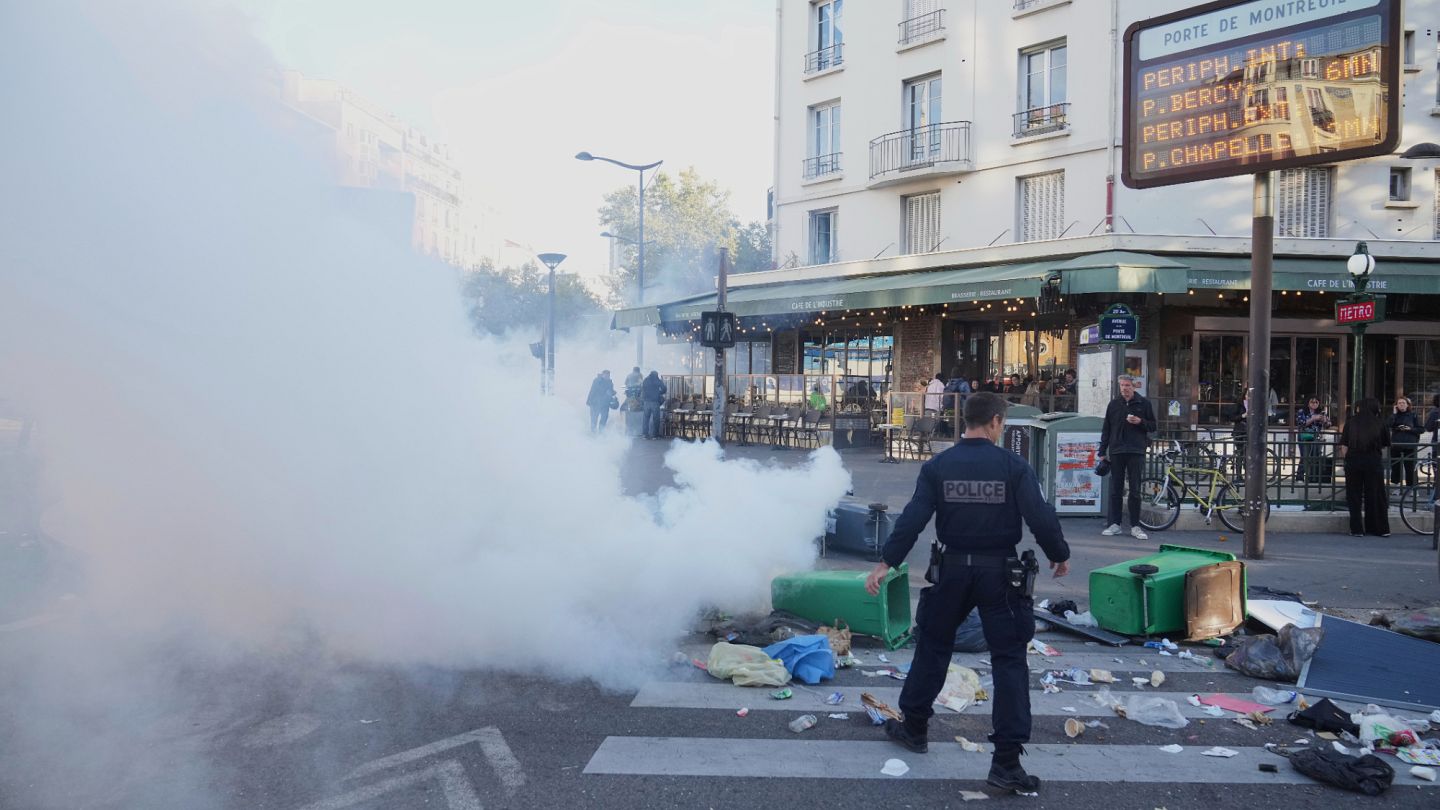
French police arrested more than 200 people Wednesday as “Block Everything” (“Bloquons tout”) protesters attempted to paralyse transport and daily life across France, two days after Prime Minister François Bayrou’s government collapsed over unpopular austerity measures.
Authorities deployed 80,000 police officers and gendarmes as thousands of demonstrators lit fires, built barricades and tried to block Paris’ ring road, Europe’s busiest urban motorway. The prefecture reported 95 arrests in the Paris area plus eight outside the capital by mid-morning on Wednesday.
At Porte de Montreuil in eastern Paris, protesters set rubbish bins ablaze and attempted to obstruct tram tracks before police dismantled the obstacles and dispersed crowds. Demonstrators also burst onto the highway in attempts to block traffic, but were likewise stopped by law enforcement.
Tensions have also grown around Paris’ Gare du Nord, one of Europe’s busiest train stations, where a few hundred people gathered by 10:30 am. Police have closed the access to the train station, however protesters are trying to force entry.
“I am protesting today because we are sick of it all,” Marie, a student and actress, told Euronews.
“Today we are here to show Macron that we’re done with all of this. He can’t just keep ignoring us and what the people want,” Marie explained, adding she was also protesting against the cuts that will affect the culture sector.
Meanwhile, an unnamed driver who took it upon himself to clear the bikes and trash cans barricading the road told Euronews he was supportive of the demonstrations. “I do understand their anger. Something needs to be done,” he said.
Other bystanders were more cautious, if not critical of the scenes unfolding on Wednesday.
“I agree that we should have the right to protest. The current situation just can’t continue,” Nesrine, a project manager who lives in the Montreuil area, told Euronews.
“But I don’t think we should vandalize or break stuff. Because who pays? It’s us taxpayers. I understand the anger but it’s not like that we can change things”
The nationwide protests, organised through social media and Telegram channels without central leadership, emerged following Monday’s government collapse and President Emmanuel Macron’s swift appointment of long-time ally Sébastien Lecornu as the new prime minister.
“No blockade will be tolerated,” warned outgoing Interior Minister Bruno Retailleau as an interministerial crisis unit convened at 9 am on Wednesday.
What is ‘Block Everything’?
The leaderless movement gained momentum from anger over inflation, austerity measures and what supporters call a dysfunctional political class. Unlike the structured 2018 Yellow Vests protests, “Block Everything” emerged this summer with less organisation but significant online support.
Two major unions, CGT and SUD, backed Wednesday’s actions while broader strikes are planned for 18 September. An Ipsos poll showed 46% of French people support the movement, including many on the left but also more than half of far-right National Rally voters.
Healthcare and pharmacy workers are protesting cuts to medical reimbursements, with unions warning that 6,000 of France’s 20,000 pharmacies could close.
Bayrou’s collapsed government had proposed slashing two bank holidays to reduce France’s public deficit, among measures that sparked widespread anger. Some protesters demanded Macron dissolve the National Assembly and call snap elections.
“It’s time for Macron and politicians to understand we are serious,” university student Thomas told Euronews prior to the protests on Wednesday. “We’re angry with the political system and the fact that the ultra-rich and corporations are not paying enough taxes.”